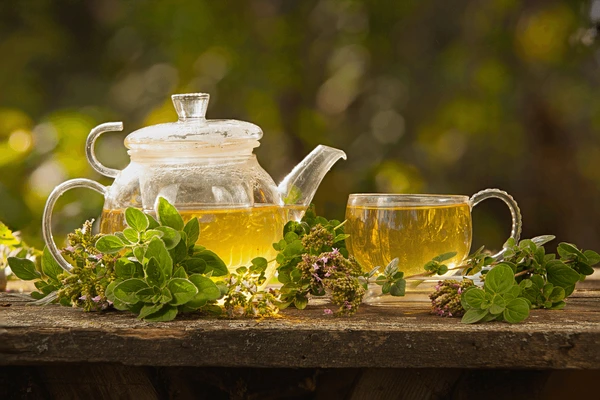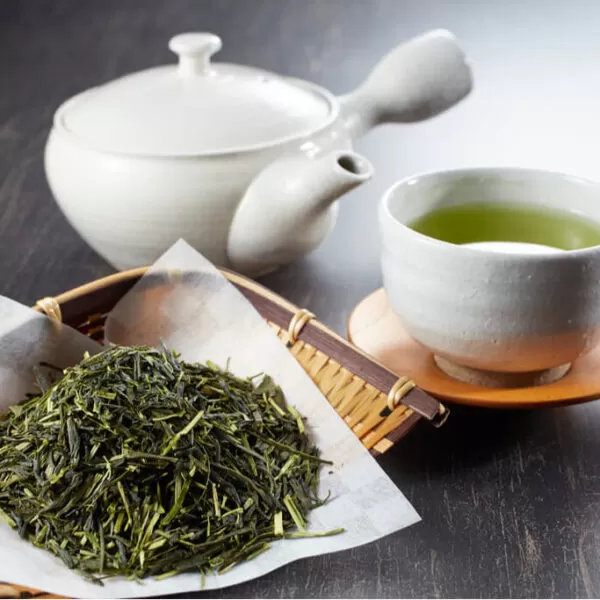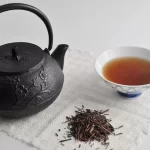Catnip Tea Benefits
Catnip Tea Benefits are quite enormous and imperative to know. Catnip, scientifically known as Nepeta cataria, is a fragrant herb that belongs to the mint family.
While it is native to Central Europe, catnip has spread widely and is now commonly found throughout much of Canada and the northeastern regions of the United States.
This perennial herb is characterized by its oval-shaped, serrated dark green leaves and its distinctive white flowering tops, which add a touch of beauty to gardens and natural landscapes.
Historically, catnip has been regarded for its potential medicinal benefits. The dried leaves and white flowers are traditionally harvested for various therapeutic uses. One of the most popular applications is in herbal tea, which is often brewed to help alleviate conditions such as insomnia, anxiety, and headaches.
In addition to the leaves and flowers, the roots of catnip can also be utilized; however, they tend to have a stimulating effect rather than the calming properties associated with the rest of the plant.
Overall, catnip continues to be a valued herb both for its aromatic qualities and its potential health benefits.
How to Make Catnip Tea
Making catnip tea is a simple process that can yield a soothing beverage with a unique flavor profile. Here’s how to prepare it:
- Gather Ingredients: You’ll need 2 teaspoons of dried catnip leaves or flowers and 1 cup of boiling water. Optionally, you can add lemon juice and honey for extra flavor.
- Combine Ingredients: Place the dried catnip in a cup or teapot, and pour the boiling water over it.
- Add Flavorings: If desired, add a squeeze of fresh lemon juice and a drizzle of honey to taste. Stir well to combine all the ingredients.
- Steep the Tea: Allow the mixture to steep for about 10 to 15 minutes. The longer you let it steep, the more robust the flavors will become.
- Cool and Enjoy: After steeping, let the tea cool for several minutes. Many people find that the flavor develops further when the tea sits with the lemon added, enhancing the natural minty and citrusy notes.
Catnip tea has a woodsy, almost grassy taste that many find appealing. Experiment with the steeping time and flavorings to discover your preferred balance. Enjoy your cup of catnip tea for its calming properties and delightful flavor!
Uses of Catnip Tea
Catnip tea is primarily known for its soothing properties and is frequently used to address nervousness and anxiety, as well as the associated symptoms these conditions can provoke, such as indigestion and insomnia. Here are some of the key uses of catnip tea:
- Nervousness and Anxiety: The calming effects of catnip tea can help alleviate feelings of anxiety and restlessness, promoting a sense of relaxation.
- Gastrointestinal Upset: Catnip tea may be beneficial for treating gastrointestinal discomfort, including indigestion, cramping, and gas. Its soothing properties can help ease these symptoms.
Diuretic Effects: The tea can act as a natural diuretic, promoting increased urination and helping to reduce water retention. This diuretic effect can be helpful in managing various conditions.
- Historical Remedies: Traditionally, catnip tea has been used to address a variety of health issues, including arthritis, coughs, hives, fevers, and viral infections.
Here’s a more detailed exploration of some of the key uses of catnip tea:

- Nervousness and Anxiety
Catnip tea is widely recognized for its calming properties, making it a popular choice for individuals dealing with nervousness and anxiety. The nepetalactone compound in catnip acts on the brain’s receptors similarly to some sedatives, promoting relaxation and helping to alleviate feelings of stress.
Many people find that drinking catnip tea before bed or during particularly stressful times can help ease their minds, making it easier to fall asleep or remain calm throughout the day.
- Gastrointestinal Upset
The soothing properties of catnip tea extend to the digestive system as well. It may be helpful for individuals experiencing gastrointestinal issues such as indigestion, cramping, and gas.
Catnip can relax the muscles of the digestive tract, which may alleviate discomfort and reduce bloating. Drinking catnip tea after meals can aid digestion and help settle an upset stomach, providing relief from symptoms associated with indigestion.
- Diuretic Effects
Catnip tea is known to have diuretic properties, which means it can promote increased urination. This can be beneficial for those dealing with water retention, helping the body eliminate excess fluid.
Increased urination can also support kidney function and assist in flushing out toxins. However, it’s important for individuals with certain health conditions, such as kidney disease, to consult a healthcare professional before incorporating diuretics into their routine.
Historical Remedies
Historically, catnip tea has been used to treat a variety of ailments. In traditional herbal medicine, it has been employed to address arthritis, providing relief from joint pain and inflammation due to its anti-inflammatory properties.
Additionally, catnip has been used to relieve coughs by acting as an expectorant, helping to clear mucus from the respiratory tract. Its antihistamine properties may also provide relief from hives and allergic reactions.
Moreover, catnip tea has been used to reduce fevers, as it promotes sweating, which can help cool the body down.
- Menstrual Support
For women or girls experiencing delayed menstruation, catnip tea may help stimulate uterine contractions, promoting the onset of their periods. This can be particularly useful for those who experience irregular cycles.
Additionally, after childbirth, catnip tea can assist in the expulsion of the placenta, facilitating postpartum recovery.
Overall, catnip tea is a versatile herbal remedy with a range of potential health benefits, making it a valuable addition to natural wellness practices.
As with any herbal remedy, it’s advisable to consult a healthcare professional before using catnip tea, especially for individuals with existing health conditions or those who are pregnant or nursing.
Potential Health Benefits
The most notable health benefit of catnip tea lies in its ability to promote relaxation. Catnip contains nepetalactone, a compound that is similar to valepotriates found in valerian, a well-known herbal sedative. This calming effect can help improve overall mood, reducing anxiety, restlessness, and nervousness.
Additionally, catnip tea may stimulate uterine contractions, making it potentially useful for women or girls experiencing delayed menstruation, as it may help induce their periods. It can also assist in promoting the expulsion of the placenta following childbirth.
Overall, catnip tea offers a variety of potential health benefits, making it a valuable addition to herbal remedies for those seeking natural solutions for anxiety and gastrointestinal issues.
Side Effects and Risks of Catnip Tea
While catnip tea is generally considered safe for most people, there are some potential side effects and risks to be aware of:
Common Side Effects
- Drowsiness: One of the most common side effects of catnip tea is drowsiness, which can be mild. This effect can be beneficial for those looking to relax or alleviate insomnia, but it may not be ideal for use during the day, particularly at the start of a workday. It’s recommended to try drinking catnip tea at night to assess how it affects you.
- Digestive Upset: Some individuals may experience headaches or digestive issues, such as nausea or stomach discomfort, after consuming catnip tea. If these symptoms persist after a few uses, it’s best to discontinue consumption.
Recommendations for Use
- Timing: Because catnip tea acts as a diuretic, it can lead to increased urination and heavy perspiration. To avoid frequent bathroom trips that could interrupt sleep, it’s advisable not to drink catnip tea right before bed.
- Age Restrictions: Catnip tea should generally be consumed only by adults unless otherwise advised by a healthcare professional. Although it has been used to treat colic in infants, it hasn’t been extensively tested in children. The sedative effects may lead to excessive drowsiness and sluggishness in young ones, making it safer to consider alternative remedies.
Pregnancy and Menstrual Considerations
- Pregnancy: Pregnant individuals should avoid drinking catnip tea, as it can stimulate uterine contractions and potentially lead to premature labor.
- Menstrual Issues: The stimulating effect of catnip on uterine contractions could also cause a woman’s period to start earlier. Therefore, catnip tea is not recommended for women with pelvic inflammatory disease (PID) or heavy menstruation, as it may exacerbate these conditions.
Surgery Considerations
If you are scheduled for surgery, it’s wise to stop drinking catnip tea for several weeks beforehand. This precaution helps prevent any interference with anesthesia or the central nervous system.
Takeaway
While there is limited scientific evidence supporting the effectiveness of catnip tea for treating various conditions, many individuals report anecdotal benefits. Most people can safely consume catnip tea two to three times a day for optimal results.
However, if you find that catnip tea is not effective in alleviating your symptoms, consulting a healthcare professional is advisable. They can provide alternative remedies or lifestyle changes that may be beneficial for your situation.
Benefits of Eating Strawberries
Benefits of Eating Pomegranate

A graduate of Computer Science and Information Management Technology. Diploma – Caregiving, Certificates – Dementia and Diabetes Awareness and Management. A researcher, blogger, songwriter, singer and acoustic guitarist. Born in an environment where natural talents such as healing are imparted at our natural birth. This natural talents of healing is the result of our genetic inheritance and the training from family environment.























